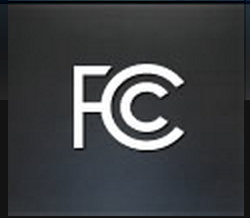This is a tough week to be Tom Wheeler, Chairman of the FCC. This Thursday he has an open meeting where he plans to present his Open Internet proposal to the full Commission. As details have come to light a very broad coalition of companies, organizations and legislators–from 150 tech firms like Netflix and Google to the ACLU and NOW–have expressed strong criticisms of it.
At issue are proposed rules that would permit some companies to pay internet service providers for a so-called fast-lane into consumers’ homes. No matter how much Wheeler has tried to assure everyone that the Commission will seriously police for instances where an ISP degrades content from competitors or sources that haven’t paid for an express lane, critics remain unconvinced. That’s because Wheeler’s proposed standard says “commercially reasonable” discrimination of internet traffic is OK, but “commercially reasonable” is a vague and ill-defined standard that seems to have loopholes big enough to drive a truck through.
Because of the backlash even two of his fellow Commissioners, Democrat Jessica Rosenworcel and Republican Ajit Pai, have called for a delay of Thursdays vote on the proposal. There is no indication that Wheeler is heeding their call.
According to Politico, in a revision being passed around Monday Wheeler will seek public comment on reclassifying broadband internet service back to being common carrier. This would give the Commission what is called “Title II” authority to more strictly regulate internet service to protect network neutrality.
The Commission removed the internet from common carrier protections during the Bush administration under the leadership of Chairman Michael Powell. Expectedly, internet service providers and many Republicans oppose returning the internet to common carrier classification.
Columbia law professor Tim Wu has been a prominent advocate of regulating the internet as a public utility. In a piece published at The New Yorker he writes that “The problem with Title II isn’t legal but political. For more than a decade, the telephone and cable companies have been trying to nullify Title II, not by amendment but by stigma,” with some success, he adds. Stigma aside, he says that contrary to some warnings the Commission’s work would not grind to halt in a mire of legal challenges.
The Mozilla Foundation, the non-profit group behind the Firefox browser, has joined Wu in calling for “Title II” classification [PDF].
Wheeler’s apparent willingness to broach the idea of reclassification looks like a positive development for net neutrality advocates, although too little is yet known for critics to let down their guard. Asking for public comment is not the same as a Commission-endorsed proposal.
In a creative act of protest, the web host NeoCities isolated the IP addresses of the FCC offices and slowed down their traffic to their service in order to give Commission staff a vivid demonstration of what an “slow-lane” to the internet looks like. NeoCities staffer Kyle Drake explained that he wanted to show how easy it is to discriminate amongst internet traffic–choosing to throttle some data while leaving other data untouched–making it clear why Net Neutrality is important to establish an “anti-discrimination policy for the net.”
Gigi Sohn is Wheeler’s Senior Counsel for External Affairs, and previously headed up the consumer group Public Knowledge, which has strongly advocated for net neutrality before and after her tenure. She will likely do some damage control for Wheeler when she hosts a Twitter chat on Net Neutrality on Tuesday from 2 – 3 PM EDT. You can follow the conversation using the hashtag #FCCNetNeutrality.
It’s going to be one of the most lively FCC meetings in quite some time this Thursday. There will be a “Rally to Save the Internet” happening outside the Commission in Washington. Some folks have already started camping out in advance. Online net neutrality supporters are being asked to speak out in support of a truly open internet, in addition to calling the FCC and Congresspeople to voice their opinion.
Once Wheeler’s proposal is officially out, then the next step will be open public comment. That’s when we’ll see how responsive Wheeler and his fellow commissioners truly are.



